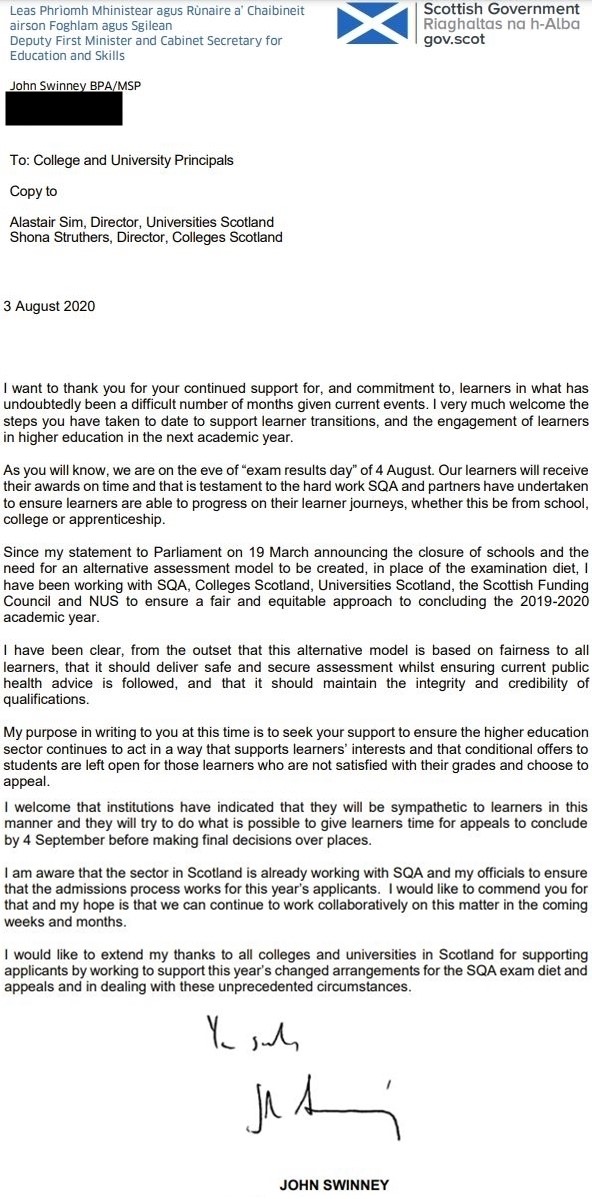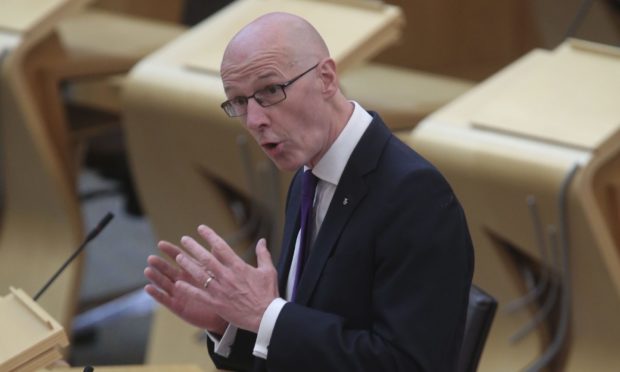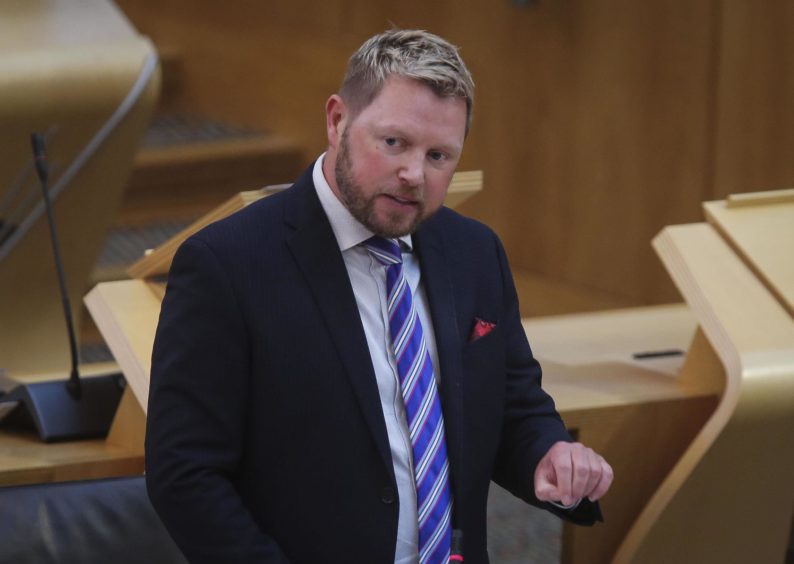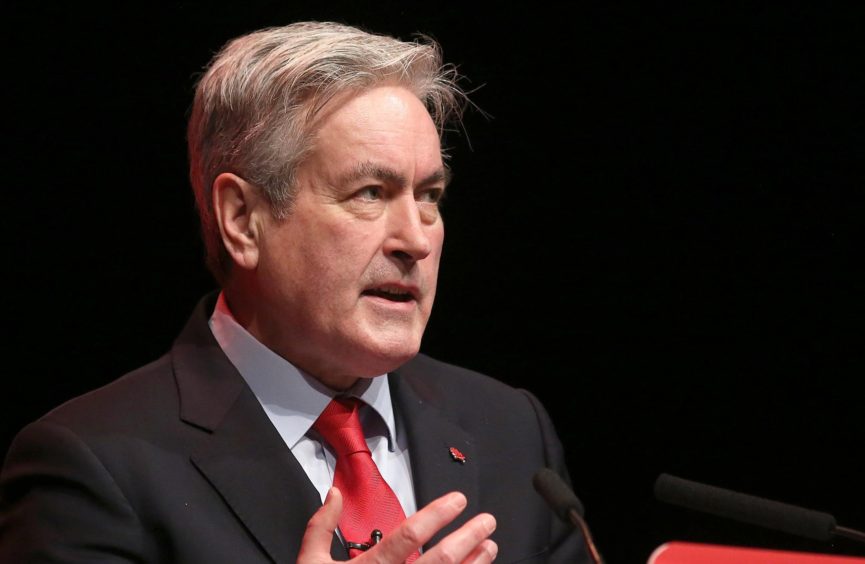John Swinney extolled the virtues of this year’s controversial exam system to Scotland’s universities just hours before fury erupted over the downgrading of thousands of pupils’ results.
In a letter to principals sent the day before grades were issued, the Education Secretary claimed the model put in place instead of formal exams would be a “fair and equitable” conclusion to the school academic year.
In the document, obtained by us through Freedom of Information legislation, Mr Swinney claimed the alternative arrangements, which he had worked with the Scottish Qualifications Authority (SQA) to produce, should maintain the “integrity and credibility” of qualifications.
The SNP’s opponents claimed the contents of the letter “beggared belief” and accused the Education Secretary of defending the “indefensible” when he knew what was coming around the corner.
This further evidence shows how John Swinney was completely burying his head in the sand when it came to this year’s exam fiasco in Scotland. He defended the indefensible right up until the eve of the results and begged universities to get on board with his policy, which penalised our most deprived communities most.”
Jamie Greene, Tory education spokesman
Shortly after Mr Swinney signed the letter, angry pupils were protesting at the way they had been graded during the pandemic and opposition politicians were attacking the system for penalising children from the poorest backgrounds.
The fiasco resulted in Nicola Sturgeon apologising to those whose marks had been affected and Mr Swinney being subjected calls for his resignation and a no-confidence motion at Holyrood.
After surviving the no-confidence vote Mr Swinney, the Deputy First Minister, bowed to pressure and performed a U-turn that resulted in tens of thousands of pupils having their marks upgraded.
The row centred on the moderation process put in place by the SQA after the coronavirus led to the cancellation of this year’s exams. The process was applied to teacher estimates of grades based on a pupil’s performance in the classroom to bring 2020 results into line with previous years.
But the system’s critics claimed it resulted in a “postcode lottery” that unfairly hit pupils from more deprived backgrounds because the SQA took into account the previous performance of schools when allocating final results.
Mr Swinney’s letter was dated August 3 – the day before results landed on pupils’ doorsteps. The document has come to light as Mr Swinney prepares to appear at Holyrood to set out policies for the current school year alongside the official review of the 2020 exams fiasco.
The letter asked for universities’ support to keep conditional offers open for pupils who might appeal if unhappy about their results.
I have been clear from the outset that this alternative model is based on fairness to all learners, that it should deliver safe and secure assessment whilst ensuring current public health advice is followed, and that it should maintain the integrity and credibility of qualifications.”
John Swinney in letter to universities
But it also said: “As you will know, we are on the eve of ‘exam results day’ of August 4. Our learners will receive their awards on time and that is testament to the hard work SQA and partners have undertaken to ensure learners are able to progress on their learner journeys, whether this be from school, college or apprenticeship.
“Since my statement to Parliament on 19 March announcing the closure of schools and the need for an alternative assessment model to be created, in place of the examination diet, I have been working with SQA, Colleges Scotland, Universities Scotland, the Scottish Funding Council and NUS to ensure a fair and equitable approach to concluding the 2019-2020 academic year.”
Mr Swinney added: “I have been clear from the outset that this alternative model is based on fairness to all learners, that it should deliver safe and secure assessment whilst ensuring current public health advice is followed, and that it should maintain the integrity and credibility of qualifications.”
Scottish Conservative Education Spokesman Jamie Greene said: “This further evidence shows how John Swinney was completely burying his head in the sand when it came to this year’s exam fiasco in Scotland.
“He defended the indefensible right up until the eve of the results and begged universities to get on board with his policy, which penalised our most deprived communities most. To know what was coming down the line, yet to still be talking up the integrity of this year’s system to our universities, beggars belief.”
Labour education spokesman Iain Gray said: “Astonishingly, these letters were written when John Swinney had seen the exam results, and then sent in the full knowledge that thousands of students had had their awards downgraded because of the school they attended. Yet he was still telling universities the awards were ‘fair’.
“This is further evidence that the deputy first minister was blind to the unfairness of the system he created, which he then defended to the hilt until protesting pupils and a vote of no confidence in parliament forced him to change his mind. This is what happens when we have a part-time education secretary who refuses to listen when everyone tells him he is getting it wrong.”
A spokesman for Mr Swinney said: “This is staggering hypocrisy, as usual, from the Scottish Tories. We accepted we got it wrong when it came to exam grades, but we moved quickly to put things right – while the Tories south of the border tried to dig their heels in over exam results in England, until they were forced to admit they too had got it wrong.”



